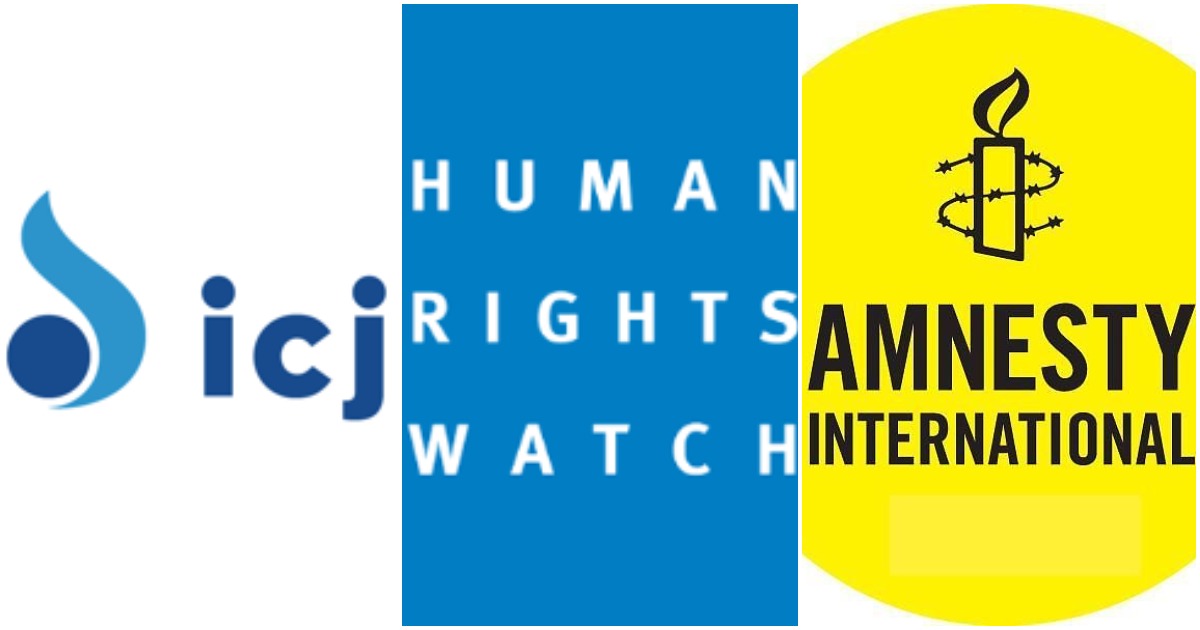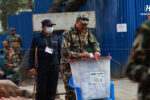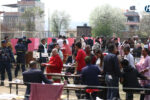KATHMANDU: On the 30th annual International Day of the Disappeared, the ICJ urged the Nepali Government to act immediately to disclose the fate and whereabouts of “disappeared” persons and to provide accountability for the perpetrators of these gross violations of human rights.
The systematic practice of enforced disappearance during Nepal’s 1996-2006 armed conflict was among the worst anywhere in the world, the ICJ says.
The fate and whereabouts of more than 1,300 possible victims of enforced disappearance are still unknown.
To date, not one individual suspected of criminal responsibility for serious human rights violations or crimes under international law committed during the conflict has been brought to justice.
“The Government must meet its human rights obligations”, said Ben Schonveld, ICJ’s South Asia Director. “Ending impunity, ensuring accountability, and strengthening the rule of law are essential for a durable transition from armed conflict to sustainable peace in Nepal”.
On 21 November 2006, the Government of Nepal and Communist Party of Nepal (Maoist) signed the Comprehensive Peace Agreement (CPA), committing to investigate and reveal the fate of those killed or disappeared during the armed conflict within 60 days.
Both parties promised they would “not protect impunity” and vowed to safeguard the rights of families of the “disappeared.”
Almost seven years later, the promises made in the CPA have still not been fulfilled, the ICJ says.
Instead, the Government has actively protected and even promoted those suspected of committing human rights violations.
On 14 March 2013, Nepal’s President promulgated an Ordinance to establish a Commission on Investigation of Disappeared Persons, Truth and Reconciliation to investigate human rights violations committed during the armed conflict.
However, the establishment of the commission was temporarily halted after the Supreme Court issued a stay order in April following legal challenges.
The proposed commission is not in compliance with international law and standards on commissions of inquiry to effectively discharge Nepal’s duty to provide remedy and reparation to victims in a number of respects.
First, the process of the appointment of the Chairperson of the Commission does not ensure independence and impartiality.
Second, the Commission has wide discretion to recommend amnesty for crimes under international law, including enforced disappearance, to those who repent.
When combined with the fact that the crime of enforced disappearance is not yet a distinct offence punishable under the law of Nepal, there are grounds for real concern that impunity for the hundreds of enforced disappearances carried out during the course of the conflict will continue.
“The framework for the Commission set out in the Ordinance was the result of a bargain between the political parties,” Schonveld added. “The Commission seems designed to enable those suspected of criminal responsibility to avoid accountability for human rights violations and crimes under international law committed over the course of Nepal’s decade-long conflict”.
The ICJ urges the Government of Nepal to:
- Withdraw the Ordinance, or establish a mechanism for its review and amendment, which includes inclusive consultation with victims of conflict related human rights abuses and representatives of civil society, with the aim of ensuring that the Commission established is consistent with international law and standards;
- Promptly accede to the UN International Convention for the Protection of All Persons from Enforced Disappearance;
- Ensure that enforced disappearance, as defined under the International Convention for the Protection of All Persons from Enforced Disappearance, is included as a distinct offence and is punishable by penalties that are proportionate with its gravity criminalized under domestic law;
- Respect court orders calling on the police to investigate human rights violations and crimes under international law and, if there is sufficient admissible evidence, prosecute those suspected of criminal responsibility in trials that meet international due process standards;
- Ensure that victims of enforced disappearance, other human rights violations and crimes under international law have access to effective remedies and receive adequate reparation, including appropriate compensation, restitution, rehabilitation and measures of satisfaction.
(From ICJ’s icj.org/Nepal)








Comment